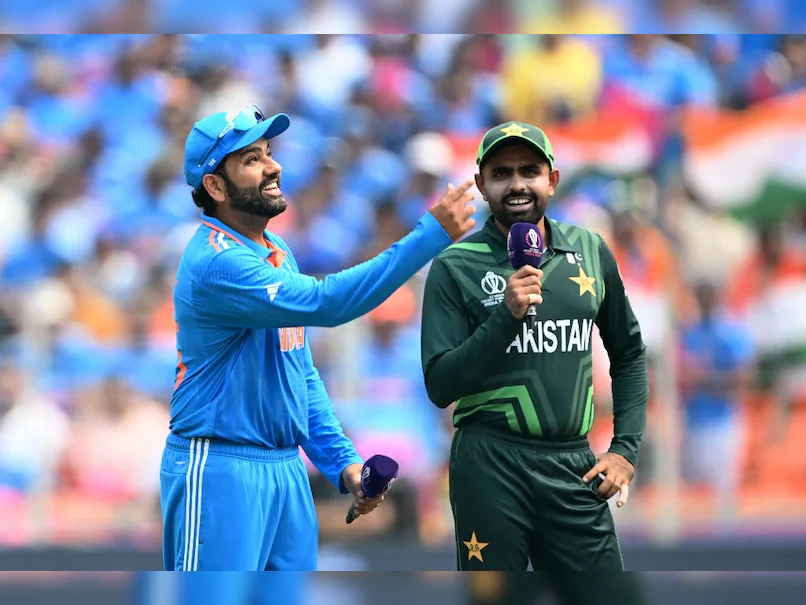A stadium pulsing with energy, flags waving, and millions glued to their screens as India and Pakistan clash in a cricket World Cup. It’s more than a game—it’s a cultural phenomenon, a heartbeat shared across borders. But the devastating terrorist attack in Pahalgam, Jammu and Kashmir, on April 22, 2025, which claimed 28 lives, has cast a dark shadow over this iconic rivalry. Reports suggest the Board of Control for Cricket in India (BCCI) is pushing the International Cricket Council (ICC) to avoid grouping India and Pakistan in future World Cup events. As a nation grieves and tensions flare, we’re left wondering: could this be the end of India-Pakistan cricket as we know it?
The Pahalgam Tragedy: A Wound That Cuts Deep
Pahalgam, often called “Mini Switzerland” for its breathtaking meadows and serene rivers, became a scene of unimaginable horror on April 22, 2025. In one of the deadliest attacks in Kashmir since the 2019 Pulwama bombing, five terrorists—allegedly linked to The Resistance Front (TRF), a proxy of Pakistan-based Lashkar-e-Taiba (LeT)—opened fire in Baisaran meadows, killing 28 civilians, mostly tourists. Among them was Lt. Vinay Narwal, a newlywed Indian Navy officer whose story of sacrifice has broken hearts across India.
The attack sent shockwaves globally. US President Donald Trump condemned it as “barbaric,” while UN Secretary-General Antonio Guterres called for justice. India responded swiftly, suspending the Indus Waters Treaty and revoking Pakistani visas, while Pakistan denied involvement, labeling India’s moves an “act of war.” Amid this diplomatic storm, cricket—a sport that’s often bridged divides—finds itself at the center of the fallout.
The BCCI’s Bold Move: No More India-Pakistan Clashes?
The BCCI, cricket’s financial powerhouse, has drawn a line in the sand. Vice-President Rajeev Shukla told Sports Tak, “We stand with the victims and condemn this heinous act. We follow the government’s lead—no bilateral series with Pakistan. For ICC events, we play due to commitments, but the ICC knows our stance.” Reports claim the BCCI has gone further, asking the ICC to avoid pairing India and Pakistan in World Cup group stages, a move that would end a tradition of blockbuster clashes designed to boost viewership.
But here’s where it gets murky. A Cricbuzz report quotes a senior BCCI official denying any such letter was sent to the ICC, casting doubt on the speculation. During IPL 2025 matches, the BCCI honored the Pahalgam victims with moments of silence and black armbands, signaling its alignment with national sentiment. So, is this a firm policy shift or a reaction to public outrage? The truth lies in the gray.
Reading Between the Lines: What’s Really Going On?
Let’s take a step back. The BCCI’s hardline stance isn’t new—India hasn’t played a bilateral series with Pakistan since 2012-13, following the 2008 Mumbai attacks. The Pahalgam tragedy has amplified calls to limit even ICC encounters, but is this about security, politics, or both? The BCCI wields unmatched influence in the ICC, thanks to India’s massive cricket market. Pushing for separate groups could be a power play to shape global cricket’s narrative while appeasing a grieving public.
On the flip side, the Pakistan Cricket Board (PCB) faces a tough road. Former players like Danish Kaneria have slammed Pakistani officials for inflammatory rhetoric, such as calling the attackers “freedom fighters.” The ICC, meanwhile, is in a bind—India-Pakistan matches are cash cows, drawing billions in viewership. The Asian Cricket Council (ACC) is also sweating, with the 2025 Asia Cup’s $170 million media rights banking on multiple India-Pakistan showdowns. If the BCCI gets its way, the ripple effects could reshape cricket’s landscape.
The Heart of the Rivalry: Fans and Memories
If you’ve ever watched an India-Pakistan match, you know it’s electric. From Sachin Tendulkar’s 2003 World Cup masterclass to Virat Kohli’s 2022 T20 heroics, these games are etched in our souls. They’re not just about runs or wickets—they’re about pride, passion, and shared history. Since 2013, fans have relied on ICC and ACC events for these clashes, with India refusing to tour Pakistan for security reasons (think the hybrid model for the 2025 Champions Trophy).
Now, the thought of fewer—or no—India-Pakistan games feels like losing a piece of cricket’s soul. On X, fans are torn. One post reads, “No India-Pakistan match? Cricket will never be the same.” Another argues, “Lives matter more than a game. Boycott Pakistan!” These voices reflect the pain of a nation and the love for a sport that’s often been a rare bridge between two neighbors.
What’s at Stake for Cricket’s Future?
If the BCCI’s reported push succeeds, here’s what could change:
- World Cups and ICC Events: Separating India and Pakistan in group stages could lower viewership and ad revenue, forcing the ICC to rethink formats.
- Asia Cup Drama: The ACC might need a neutral venue or new schedule, risking its financial model.
- Fan Heartbreak: Millions who live for these matches could feel cheated, dimming cricket’s global shine.
- Geopolitical Fallout: Cricket’s role as a soft power tool might fade, deepening the India-Pakistan divide.
But there’s another angle: could cricket heal? Past matches, like the 2011 World Cup semifinal, brought moments of unity. The question is whether sport can still rise above tragedy—or if the wounds are too fresh.
A Personal Reflection: Where Do We Go From Here?
As a cricket fan, I’m torn. The Pahalgam attack is a gut punch—28 lives lost, families shattered. It’s hard to argue with the BCCI’s instinct to prioritize security and sentiment. But cricket has always been more than a game. It’s the roar of a billion dreams, the fleeting moments when India and Pakistan feel like cousins, not rivals. Losing that feels like losing hope.
The ICC and ACC have tough calls ahead. Fans deserve a say, too. Maybe a neutral venue or stricter security could keep the rivalry alive without compromising safety. Whatever happens, let’s honor the victims by ensuring their loss fuels unity, not division.

